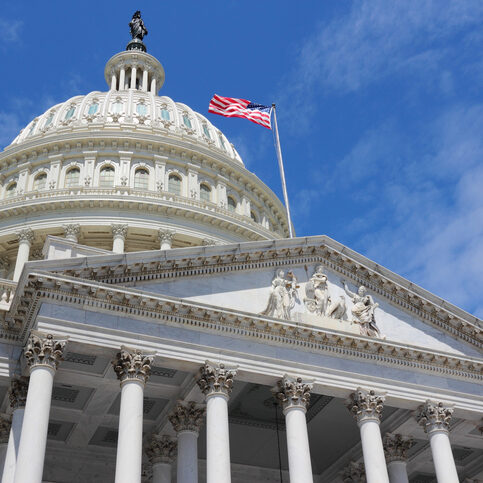Insights < BACK TO ALL INSIGHTS
Congress Saves Consumer Arbitration
Congress Saves Consumer Arbitration
By: George Calhoun
In July 2017, the Bureau of Consumer Financial Protection (“CPFB”) announced a new rule broadly barring arbitration provisions in a wide swath of consumer contracts. See 12 CFR part 1040. To go into effect next Spring, the final rule would have prohibited providers of certain consumer financial products and services from using an agreement with a consumer that provides for arbitration of any future dispute between the parties to bar the consumer from filing or participating in a class action. Second, the final rule requires covered providers that are involved in an arbitration pursuant to a pre-dispute arbitration agreement to submit specified arbitral records to the Bureau and also to submit specified court records. The rule has spawned heated debate between industry and consumer groups.
When the rule was announced in July, industry groups sought relief in court seeking to overturn the rule. Yet the best hope to preserve contractual arbitration rights was not the courts, but Congress. President Trump has upheld his campaign promises to roll back regulations. According to the Associated Press, his administration has withdrawn or delayed more than 800 proposed regulations in the first five months of his term. He also has issued a moratorium on new regulations. Although many had expected his ouster, President Trump did not remove CFPB Director Richard Cordray. As a result, the CFPB pressed forward with its plan to finalize the consumer arbitration rule, which avoided the administration’s initial roll backs. Under the new administration, however, Congress has invoked the Congressional Review Act multiple times to kill new regulations. Yesterday, in a much-watched move, the Senate did it again, voting to annul the CFPB rule.
Given the highly politicized nature of the rule, the vote was almost a straight party-line, with two republicans defecting. The resulting deadlock was broken by Vice President Pence, who’s deciding 51st vote ensured passage of the resolution to annul the CPFB’s consumer arbitration rule. The resolution also bars regulators from imposing a similar rule in the future. The House voted 231-190 in July to overturn the rule.
The measure now goes to President Trump for his signature, which is expected swiftly. The White House commented in a statement: “The evidence is clear that the CFPB’s rule would neither protect consumers nor serve the public interest.” Instead, “consumers would have fewer options for quickly and efficiently resolving financial disputes.” Similarly, Senate banking committee Chairman Mike Crapo stated that: “The CFPB chose an all-or-nothing approach, leaving Congress no choice but to overturn it.”
The move is welcome news for the financial industry, which was facing an onslaught of consumer class action cases if the rule was upheld. In contrast, the clear losers are class-action plaintiffs’ lawyers, who will be unable to bring potentially ruinous class actions for many consumers. While the plaintiffs’ bar will undoubtedly criticize the move, it is far from clear that it will hurt consumers.





